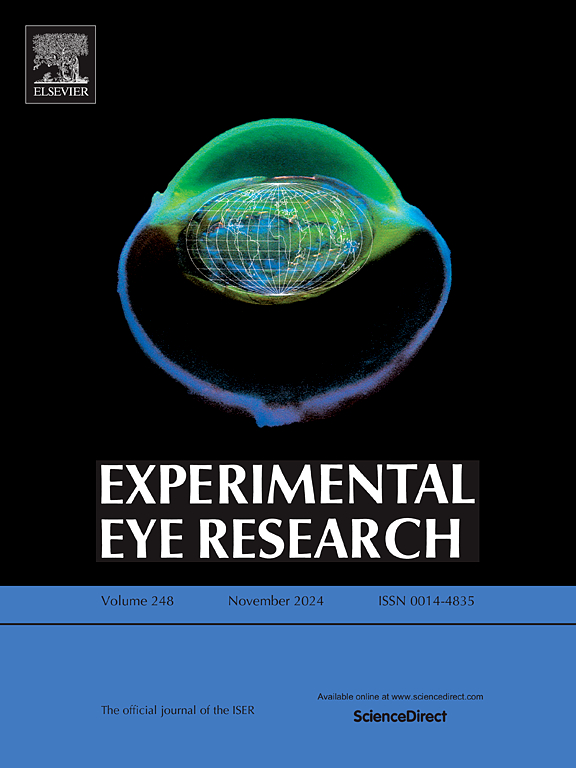Dissecting the biological complexity of age-related macular degeneration: Is it one disease, multiple separate diseases, or a spectrum?
IF 3
2区 医学
Q1 OPHTHALMOLOGY
引用次数: 0
Abstract
Clinicians recognize the heterogeneity of age-related macular degeneration (AMD) in presentation, progression, and treatment response, as well as the challenges in distinguishing it from other macular degenerations. As part of the 2024 Ryan Initiative for Macular Research meeting, a group of clinician-scientists and basic scientists were convened to consider the question of whether AMD should be classified as a single disorder or a spectrum of conditions. To answer this question, we reviewed research on several “dimensions” that constitute AMD risk or pathogenesis: genetics, ancestry, retinal imaging findings, diet and environment, aging, and outer retinal molecular and cellular pathways. The group reached a consensus that AMD represents a heterogeneous collection of disease states arising from the interplay of these dimensions. This heterogeneity can be conceived of as a “cloud” of AMD phenotypes. Defining subtypes within this “cloud” requires longitudinal cohorts of well-genotyped and phenotyped patients who progress from no AMD through late AMD, analyzed by unsupervised learning. Comparing the AMD subtypes that emerge from this analysis, especially -omics data from each subtype, will illuminate biology that is applicable to certain subtypes of AMD patients and molecular pathogenic mechanisms that universally apply to all AMD. This knowledge will, in turn, drive improved drug development.
剖析老年性黄斑变性的生物学复杂性:它是一种疾病,多种独立的疾病,还是一个谱系?
临床医生认识到年龄相关性黄斑变性(AMD)在表现、进展和治疗反应方面的异质性,以及将其与其他黄斑变性区分开来的挑战。作为2024年Ryan黄斑研究倡议会议的一部分,一组临床科学家和基础科学家被召集起来讨论AMD应该被归类为单一疾病还是一系列疾病的问题。为了回答这个问题,我们回顾了构成AMD风险或发病机制的几个“维度”的研究:遗传、祖先、视网膜成像结果、饮食和环境、衰老、视网膜外分子和细胞途径。该小组达成共识,AMD代表了由这些维度的相互作用引起的疾病状态的异质集合。这种异质性可以被认为是AMD表型的“云”。在这个“云”中定义亚型需要对从无AMD到晚期AMD的良好基因分型和表型的患者进行纵向队列分析,并通过无监督学习进行分析。比较从该分析中出现的AMD亚型,特别是来自每个亚型的组学数据,将阐明适用于某些亚型AMD患者的生物学和普遍适用于所有AMD的分子致病机制。这一知识反过来将推动改进的药物开发。
本文章由计算机程序翻译,如有差异,请以英文原文为准。
求助全文
约1分钟内获得全文
求助全文
来源期刊

Experimental eye research
医学-眼科学
CiteScore
6.80
自引率
5.90%
发文量
323
审稿时长
66 days
期刊介绍:
The primary goal of Experimental Eye Research is to publish original research papers on all aspects of experimental biology of the eye and ocular tissues that seek to define the mechanisms of normal function and/or disease. Studies of ocular tissues that encompass the disciplines of cell biology, developmental biology, genetics, molecular biology, physiology, biochemistry, biophysics, immunology or microbiology are most welcomed. Manuscripts that are purely clinical or in a surgical area of ophthalmology are not appropriate for submission to Experimental Eye Research and if received will be returned without review.
 求助内容:
求助内容: 应助结果提醒方式:
应助结果提醒方式:


